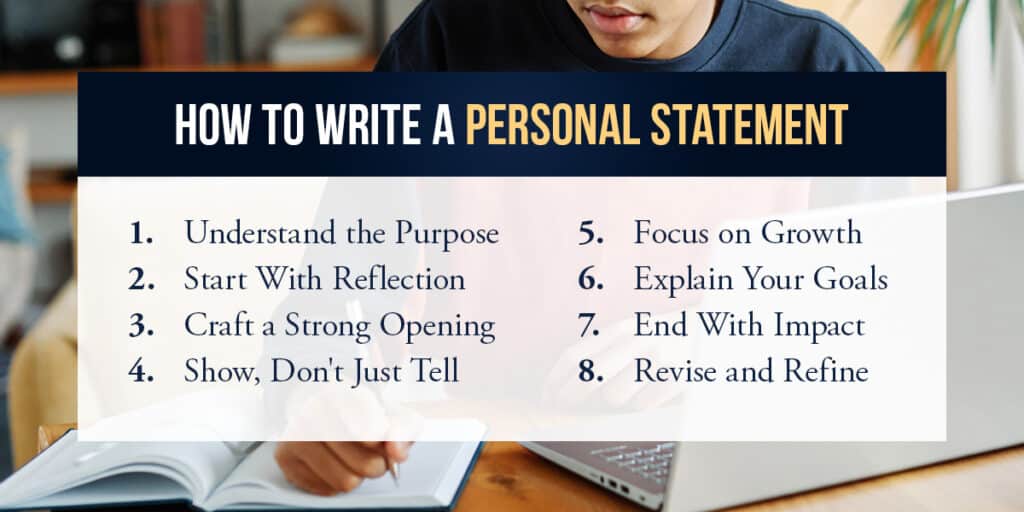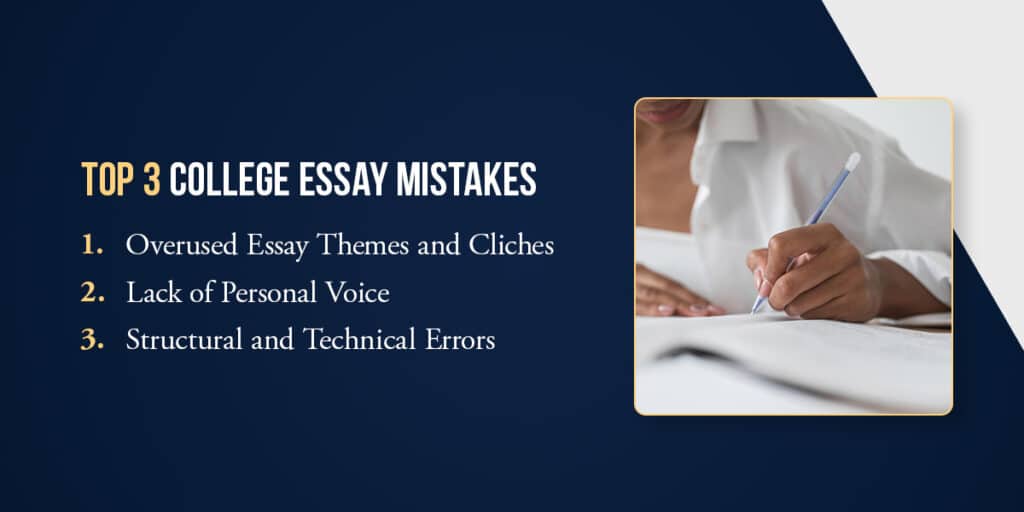How to Write a Personal Statement: Tips, Examples, and Guidelines for Crafting Effective Statements for Graduate School, Scholarships, and University Applications
Learn how to write a personal statement with clear tips and examples t use during the application process for universities, scholarships, and beyond. Zenith Prep Academy helps you highlight your unique experiences and goals in your statement writing.
Key Insights
- Writing a personal statement needs clear organization, logical flow, and good storytelling to show your unique experiences, skills, and goals.
- When writing a pers statement, start by finding what makes your story interesting and important. Use examples and facts to back up your points, and avoid common mistakes.
- Know the application rules for undergraduate programs, internship opportunities, and scholarships. This helps you customize your statement for schools like Purdue University, Carnegie Mellon University, or University of Missouri.
- Use resources such as university writing centers, online OWL guides, and webinars. These can help you improve your writing and get feedback from mentors and admission readers.
- Proofread several drafts of your personal statement. Check grammar, punctuation, and clarity. Ask trusted friends, family, or advisors to review your work before sending it.
- Show qualities like resilience, leadership, and how you overcame problems. This helps to connect your background and ambitions with the program or career you want.
- Include a clear main idea that states your purpose. Explain how your academic interests or job goals link to your past experiences and future plans.
- Avoid generic statements by making your story unique and easy to remember. Use clear descriptions, storytelling, and show self-awareness and growth.
- When answering prompts like “Why this program?” or “What are your career goals?”, give specific details and research about the school, such as Illinois or UCAS programs, to make your case strong.
- Talk about your extracurricular activities, internships, leadership skills, and relevant courses. This gives the admissions team a better view of your commitment and readiness.
- Keep your tone positive, honest, and friendly but professional. Adding light humor or personality can help connect with readers without weakening your message.
- Manage your word count carefully. Focus on being clear and effective, not on length. Follow any formatting or submission rules, like file type or menu steps in application portals.
- Use AI tools like ChatGPT only to help brainstorm and edit. Make sure your final statement sounds like you and shows your true voice and experiences.
- You can talk about challenges like health issues, depression, or money problems; but be sure to focus on what you learned and how you grew from these experiences.
- Highlight your communication and research skills if you are applying to fields needing critical thinking, data work, or scientific study. This shows your academic preparation.
- Mention mentors, networking chances, and campus life. This shows you understand the full education experience and how it fits your goals.
- Use an outline or table of contents when drafting long personal statements. This helps organize your ideas clearly and keeps paragraphs connected.
- Add keywords naturally about your field or profession. This makes your statement more relevant and helps it stand out in digital searches or scholarship reviews.
- Keep up with changes in education and recruitment such as new admissions rules and effective use of AI and digital tools. This makes sure your statement stays current and informed.
- End your personal statement with a strong finish. Repeat your excitement, summarize your strengths, and express hope to join the program or campus community.
Writing a personal statement can be an overwhelming step in applying to college. Although a strong academic and extracurricular profile is crucial for a student’s application to be considered—especially at top universities with competitive applicant pools—the personal statement is a distinguishing factor in selecting which students are ultimately accepted.
This essay allows students to share their unique stories and show who they are beyond their academic and extracurricular profiles. It can be challenging for students to authentically convey themselves, especially in a high-stakes environment where they need to stand out.
This guide breaks the process down step-by-step to help students craft genuine narratives in an engaging and memorable way.
What Is a Personal Statement?
Before viewing the personal statement from a student’s perspective, zoom out and evaluate the reason universities ask students to write it in the first place.
Simply put, judging a book by its cover isn’t possible—a student’s resume and transcript tell only part of the story. The personal statement allows college admission offices to delve deeper and gain a holistic perspective on:
- Who the student is—what they care about and their values
- How they will impact the campus community and beyond—how their qualities and skills demonstrate future potential
From the student’s point of view, the personal statement is a chance to get personal. This essay cuts through the minutiae of titles and accolades. It allows students to add an emotional and human element to their applications by writing about the moments and experiences that have shaped them as people. It is also an opportunity for students to engage in self-reflection by highlighting their achievements, experiences, and challenges they have overcome. Most importantly, the personal statement allows the student to paint a picture of who they want to become and how that institution would help them achieve that.
Personal Statements vs. College Essays
Most schools require a personal statement as the primary application essay. It gives the reader a fundamental understanding of an applicant’s character, background, and personality. Depending on the school, the personal statement may be the only essay an applicant is required to submit.
It is common for universities, particularly those that are more selective, to have supplemental essay prompts for students to answer in addition to submitting their personal statements. These prompts vary from school to school, but they are generally more targeted in assessing institutional fit by asking students why they want to attend that particular college and also asking questions like “Tell us more about an extracurricular activity that is important to you.” Colleges will read all of these essays together, and–ideally–the themes and ideas in the personal statement will echo through the supplemental essays.

How to Write a Personal Statement
It is important to remember that this type of writing and task is very new for most students. Normal high school classes usually don’t ask students to write in a reflective personal essay that gets to the same depth and insight that a good personal statement does.
Writing a personal statement is a process. It requires brainstorming, reflection, careful planning, and numerous revisions to produce a compelling and authentic piece.
1. Start With Reflection
The ability to self-reflect is a critical skill colleges want to see in students. It’s also the first step to writing a thoughtful personal statement. Some questions to help generate the reflection process include:
- What am I passionate about?
- What moments and experiences have shaped who I am?
- Why am I applying to college, and what do I hope to achieve?
- What challenges have I overcome, and what did I learn?
While working through these questions, start brainstorming a few answers. It’s important to avoid overthinking at this stage. This freewriting is not what will be submitted, so writing can—and honestly should be—unpolished, raw, and disorganized. Instead, focus on writing that is honest and real. It’s also important to do that brainstorming yourself and not fall back on asking ChatGPT to pump out ideas. The specific texture of your life that comes out at this stage of the process is what will ultimately give your personal statement a feeling that is truly personal.
2. Craft a Strong Opening
First impressions are everything. Admissions officers read countless essays on a given day, and a subpar introduction can make them glaze over the rest of the essay. The introduction should make yur reader want more.
Here’s an example of a weak introduction:
“Since I was a child, I have wanted to help others and make a difference in the lives around me by becoming a doctor.”
- Cliché: Statements like “Since I was a child…” sound like every other applicant. This type of impersonal writing does not help make the reader feel connected to the student.
- Too general: Specificity is key to writing a good essay. Wanting to help others and make a difference could apply to just about any student.
Here’s a strong introduction:
“The fluorescent lights buzzed overhead as I struggled to make out my trembling hands covered in ketchup.”
- Mysterious: People don’t like spoiled endings for a reason. The more unexpected or unusual something is, the more people are naturally interested. This sentence raises many questions—why is there ketchup on the student’s hands? Where could they be with buzzing fluorescent lights? What’s making the hands tremble? This makes the reader want to keep reading.
- Vulnerable: The way the writing starts in the middle of this chaotic moment almost makes it feel like the reader shouldn’t be there. The writer heightens the stakes by infusing emotions and energy into the details, like trembling hands and intense lighting.
Whether a student uses a personal anecdote, shares a fun fact, or reveals a confession—the introduction needs to be personal, engaging, and captivating.
3. Show, Don’t Tell
Sharing stories, moments, and experiences to convey something is far more impactful than just stating it. Students should show, not tell, the reader about their experience.
Telling:
“I’m passionate about science.”
Showing:
“In ninth grade, I spent late nights testing blade designs to ensure the mini wind turbine I built for my science fair project generated the most power possible.”
The second example is far more personal, thoughtful, and engaging. It helps the reader connect to the human behind the writing and see the world for a moment through their eyes. It also helps the student be memorable—an admissions officer is far more likely to remember the kid staying up late at night building his mini wind turbine than someone who is vaguely “passionate” about science.
4. Focus on Growth
It’s easy to get caught up in the plot of the personal statement, but students need to consider the bigger picture: What does all of this say about them as a person?
One way to incorporate growth in the personal statement is to have every “what” be followed by a “why.” Students should always ask themselves why they include this information and what they try to show about themselves.
- What: Student writes about overcoming a challenge… Why: Shows how they developed resilience, adaptability, and the ability to advocate for themself
- What: A student writes about discovering their passion… Why: Shows how they found a sense of purpose, gained self-confidence, and fostered a deeper sense of self-awareness
- What: A student writes about their involvement in a club… Why: Shows how they learned to collaborate, gained leadership skills, and found a sense of belonging
The student needs to connect the dots and reflect on how the moments and experiences they write about molded the person they are.
5. End With Impact
The conclusion is often the hardest part of the personal statement to write. This is the conclusion to a 5-paragraph essay that ends with a restatement of the evidence previously discussed… what could be more boring?
Ideally, the conclusion finds some creative way to twist the ideas from the previous paragraphs in a new way or open up on a new experience. For example, an essay about the challenges a student faced while trying to make a horror film as a fun side project might end with a scene that describes the moment the monster actually emerges on set for the first time. Or an essay about learning how to make the perfect pasta for their grandmother who is sick might end with the student talking about how they apply those same skills of patience on the lacrosse court. Rather than “concluding” the essay, a good conclusion should leave the admissions officer thinking that they want to hear more about the applicant.
6. Revise and Refine
It takes many rounds of writing, rewriting, proofreading, and edits before reaching the final draft.
Students should read their personal statements out loud. Hearing it through spoken word often reveals sentences that don’t make sense or flow.
Take breaks after finishing a draft. Eat a snack, take a walk, or even better—get a good night of sleep—before revisiting it with a clear mind and fresh eyes.
Speaking of eyes, students should get other eyes on it, too. They should share it with parents, teachers, or mentors to get various perspectives and opinions.
Some aspects to consider during revisions include:
- Substance—Are there examples and anecdotes to support the topics written about? Does the student’s voice shine through the writing? Does the essay accurately represent the student?
- Structure—Are there clear transitions between sentences and paragraphs? Does it sound like a cohesive narrative that flows together, or are there sections that seem disjointed, scattered, or random?
- Compelling—Is the content unique and interesting? Can anything be cut that is repetitive or unnecessary?
- Grammar/Syntax—Is the writing clear and readable? Are there grammatical/spelling errors?
8 Tips for Writing a Personal Statement
Consider these tips that will help a personal statement stand out:
- Stay focused: Quality is better than quantity. While sharing as much information as possible can be tempting, the student should focus on depth over breadth.
- Be authentic: Avoid trying too hard or coming across as forced—admissions officers value honesty over complex language. The students’ personalities should shine through their writing. If they naturally have a sense of humor, this is the place to show it! (and if they don’t, this isn’t the place to try out a new jokey personality that doesn’t fit).
- Show passion: Students should express their passion through detailed examples. The reader should be able to feel it through the writing!
- Be humble and reflective: Research has shown a positive correlation between intelligence and humility. Students should acknowledge those who supported their journey and demonstrate their ability to view mistakes as opportunities to grow and learn.
- Use personal stories: This is the best way to “show” rather than “tell” what a student is like. It helps the reader to connect with the student on an emotional level because it makes the applicant feel like a living, breathing human being.
- Avoid superlatives: Achievements should speak for themselves. Students should avoid overusing words like “best” or “greatest” at the risk of sounding pretentious and insincere. This goes back to prioritizing authenticity and exercising humility.
- Start early: Writing the personal statement is a process. Students should start early and give themselves time to brainstorm, draft, and refine their statements.
Maximize College Success With Zenith Prep Academy
As one of the top college consulting and education companies in the United States, Zenith Prep Academy is here to guide your student into the college of their dreams.
With thousands of happy clients and our proven track record of Ivy League and Top 25 University acceptance rates, our dedicated team is committed to maximizing your child’s potential.
Book a free consultation with us today, and let’s discuss how we can turn your child’s college dreams into reality.
What is a personal statement, and why is it important?
A personal statement is a written essay that lets you share your unique story, experiences, and goals with an admissions committee, scholarship provider, or internships. It is more than just a summary of your resume or grades. It is your chance to show who you are, what you want, and why you are a good fit for a university scholarship.
When writing a personal statement, clear and focused writing is very important. You should explain your purpose, describe your experiences, and show how they shaped your academic career and personal goals. This helps your application stand out and helps the reader understand your motivations.
Here are some writing tips for personal statements:
- Be honest and genuine.
- Share specific experiences that show your skills and growth.
- Keep your purpose clear throughout the essay.
- Customize your statement for the opportunity, whether it is undergraduate study or postgraduate research.
- Proofread carefully to avoid mistakes and stay professional.
Following guidelines for writing a personal statement can help make a good essay successful by making your story interesting and relevant. This is your chance to demonstrate your potential and passion.
Who is your audience (admissions committee, scholarship provider, etc.)?
Knowing your audience is important to write a personal statement that connects. Your readers may include admissions committees, scholarship providers, or financial aid offices. Each group looks for different things, so knowing who will read your statement helps you focus on what they care about.
Think about these audiences:
- Admissions committee: They want to see your academic readiness, special qualities, and how you fit their program.
- Scholarship provider: They look for your achievements, financial need, career goals, and how the scholarship will help you succeed.
- Employers and recruiters: They focus on your skills, training, and how you can contribute to their organization.
You might also get feedback from mentors, peers, or writing centers to help improve your statement.
To connect well with your audience, ask yourself:
- Who am I writing for?
- What do they care about?
- How can I show I am a good fit for this opportunity?
Being clear about your audience helps shape your tone, content, and style. This makes your statement stronger and more convincing.
What are the key goals of your personal statement?
A personal statement should meet several key goals to improve your chances of success. Whether applying for undergraduate admission, an internship, or a scholarship, your statement should:
- Show your skills, achievements, and experience. Share what you have learned and how you have grown through education, internships, or research.
- Explain your purpose and goals clearly. Tell why you want this opportunity and how it fits your education or career plans.
- Highlight your unique qualities and story. Admissions committees and scholarship providers appreciate originality and real passion.
- Connect your background to the program or scholarship. Make it clear why you belong there and what you bring.
- Show your commitment to growth and learning. Talk about your educational progress and future goals.
- Provide a clear and focused story. Avoid vague statements; use concrete examples and experiences that support your goals.
By meeting these goals, your personal statement not only tells your story but also convinces the reader that you are a strong candidate ready to succeed and make the most of the opportunity.
Do you feel ready to write your personal statement? What challenges do you face? Share your thoughts or questions below—we can help you create a statement that stands out. For more help, check our personal statement writing resources and expert tips at Zenith Prep Academy.
Crafting Your Narrative: Showcasing Your Unique Story
How to brainstorm and identify compelling experiences and qualities
Writing a personal statement can feel difficult at first, but brainstorming helps you find your unique story. Start by thinking about your life experiences, such as internships, research, or leadership roles. Ask yourself questions like:
- What challenges have I faced, and how did they help me grow?
- What skills have I developed through education or volunteer work?
- Who are my mentors, and what lessons did they teach me?
- What moments show my strengths and interests best?
Write down anything that stands out, even small details. These notes will help with your personal statement writing. Your personal statement should show who you are—your qualities, growth, and passion for your career.
Brainstorming this way helps you gather different experiences and qualities that make your story interesting and real. Keep your notes organized so you can easily pick the best examples when you write.
Developing a clear and concise narrative arc (beginning, middle, end)
To create a strong personal statement, think of it as telling a story with a beginning, middle, and end. A clear narrative arc makes your statement easy to follow and interesting.
- Beginning: Introduce yourself and explain what sparked your interest in the field. This grabs the reader’s attention.
- Middle: Share important experiences like internships, research, or leadership roles. Show how these helped you build skills and understanding.
- End: Finish by talking about your future goals and how the program fits your career plans.
When writing, make sure ideas flow smoothly. Use clear connections between points. A logical structure helps the reader understand your growth. After writing a draft, get feedback and edit to make your statement clear and focused. Using good storytelling skills along with a well-organized statement of purpose or other personal statement format makes your message stronger.
Showcasing achievements and skills through specific examples
A good personal statement does more than list achievements—it shows how those experiences prove your skills and potential.
Use specific examples from internships, awards, research, or training to support your points. For example:
- Instead of saying “I am a leader,” describe a time when you led a project that had clear success.
- Talk about research you worked on and what skills you gained, like problem-solving or teamwork.
- Mention scholarships or awards that recognize your hard work.
These examples provide proof of your skills and achievements. This makes your personal statement more believable and easier to remember. Admissions committees look for clear examples of impact and growth.
Make sure your achievements match your career goals. This shows your statement is more than a list; it reflects your path toward future success.
Do you have stories or achievements that shaped your journey? Share them below or contact us if you want to know how we can help you write and revise your personal statement! At Zenith Prep Academy, we guide you every step of the way.
For more tips on personal statement writing and sample examples, visit our personal statement resources.
Structuring for Impact: Organization and Flow
Writing a personal statement can seem difficult, but organizing your ideas clearly makes a big difference. Whether you are applying for acceptance to a university, to receive a merit-based scholarship, or to secure an internship, a well-structured personal statement grabs the attention of the admissions committeeand keeps it.
Start with an introduction that opens strong and shows who you are and why you are applying. Use clear and interesting language to make your purpose clear from the first sentence. Then, move through your essay in a logical way so readers can easily follow your story or point. Finish with a conclusion that is memorable and leaves a strong impression.
To write an effective personal statement, focus on showing why you are the right fit for the university, program, or internship. Avoid going off-topic or adding unrelated details. Each paragraph should have a clear purpose and build on what came before.
Thinking carefully about how you organize your personal statement will make it easier to read and provide more effective personal qualities that the admissions committee or employer will notice and value.
Effective opening hooks and closing statements
How you open and close your personal statement sets the tone for the whole essay. A strong introduction grabs the reader’s attention and makes them want to keep reading. You might start with a meaningful story, a surprising fact, or a bold statement related to your goals. The key is to be clear, interesting, and purposeful. The admissions committee wants to understand your motivation quickly.
A strong conclusion ties your points together and leaves a lasting impression. Summarize your main ideas and restate your excitement for the opportunity. Avoid common phrases or weak endings. Instead, write a confident and positive closing that shows your growth or future plans.
Tips for opening and closing:
- Begin with a hook that connects to your main message.
- Clearly explain your purpose in the introduction.
- Avoid overused phrases like “I have always wanted to…” unless they add real meaning.
- Close by showing your passion and readiness, but avoid using phrases like, “In conclusion…” or “This is why I believe…”.
- End with a hopeful or forward-looking sentence to inspire the reader.
Using these tips helps create a clear, strong, and memorable first and last impression in your personal statement.
Using clear transitions between paragraphs and ideas
Smooth transitions are important in personal statements to guide readers through your story or points without confusion. Good writing tips for personal statements stress the need to connect ideas logically and make the narrative easy to follow.
Think of transitions as links between paragraphs or ideas. They help keep the essay organized and the reader interested. Without transitions, your essay may feel choppy or hard to follow, which can negatively impact how the admissions committee connects with you as an applicant..
To improve transitions:
- Use linking words like “however,” “for example,” “in addition,” or “as a result” to join ideas smoothly.
- Briefly refer back to earlier points before introducing new ones.
- Keep paragraphs in a logical order—start with background, then skills, experiences, and finally goals.
- Ask mentors for feedback on your essay’s flow.
- Edit carefully to remove sudden jumps or gaps in your story.
Keeping a steady and logical structure makes your personal statement easier to read and more enjoyable for the reader.
Maintaining a consistent tone and voice throughout
Keeping a consistent tone and voice makes your personal statement feel real and professional. Whether you are applying for admission to auniversity, to receive a merit-based scholarship, or to secure an internship, your writing style should show your personality while fitting the audience.
Personal statement writing requires balancing a sincere tone with clear communication. Your voice should sound like you, not too formal or stiff, but not too casual either. This shows the admissions committee that you are serious and thoughtful.
Ways to keep a steady tone and voice:
- Decide early what tone fits your audience (formal or conversational).
- Write in the first person to add authenticity.
- Avoid slang or terms that might confuse readers.
- Stay true to your own style; don’t imitate others.
- Ask mentors or advisors for feedback to make sure your voice is clear and steady.
- Use simple and direct language—clarity matters most.
This balance lets you communicate your message clearly while showing your unique personality. It also makes your application easier to read and more memorable.
Have you started writing your personal statement? What challenges did you face in organizing your ideas or keeping your voice steady? Share your thoughts in the comments below — we want to help!
For more expert advice on writing great applications, check out our personal statement writing guide. At Zenith Prep Academy, we support you at every step.
Refining Your Statement: Editing and Proofreading
Writing a personal statement can feel challenging, especially when you have homework, research, and other tasks to handle. However, editing and proofreading your statement is an important step that can greatly improve it. This process helps you find mistakes, make your language clearer, and ensure your main points stand out. Here are some ways to polish your personal statement so it makes a strong impression.
Identifying and correcting grammar, punctuation, and spelling errors.
Errors in grammar, punctuation, or spelling can distract the reader and weaken your statement. To make sure your personal statement is clear and professional, carefully review each draft. Use these writing tips for personal statements to identify and fix common mistakes:
- Read your statement aloud: Listening to your words can help you catch awkward phrasing and missed mistakes.
- Use editing tools: Programs like Grammarly or Hemingway highlight grammar and spelling issues.
- Print your draft: It’s often easier to spot mistakes on paper than on a screen.
- Check one thing at a time: For example, look at punctuation first, then grammar, and finally spelling.
Regular editing improves your writing and shows the admissions committee you pay attention to detail.
Seeking feedback from trusted sources (peers, mentors, writing centers).
Feedback is one of the best ways to improve your personal statement writing. Peers, mentors, or writing centers can offer new ideas and helpful advice. Here is how to get the most from their input:
- Ask clear questions: Instead of “What do you think?”, try “Is my motivation clear here?” or “Did I miss any grammar mistakes?”
- Join writing workshops or groups: These provide chances to get thoughtful feedback.
- Take notes on suggestions: Use comments to revise and strengthen your draft.
- Thank those who help you: Showing gratitude encourages them to support you again.
Feedback lets you see your work through different eyes and makes your writing stronger.
Tailoring your statement to specific application requirements.
Each application has its own rules, so your personal statement should fit them. It is important to customize your statement to match the program’s qualities, audience, and requirements. A personal statement written for one university may need to be adjusted for another university; the same personal statement will look different when applying to medical school versus business school and again for an internship or research-based opportunity. Follow these steps to align your statement with the application:
- Read the instructions carefully: Check for word limits, prompts, or special themes.
- Focus on the audience: Emphasize experiences and skills that matter to the program or scholarship.
- Create different versions: Adjust your statement to meet criteria for AMCAS, UCAS, or other applications.
- Show why you fit: Explain how your goals match what the admissions committee or scholarship provider wants.
Adapting your statement to the requirements helps you stand out and impress reviewers.
Taking time to edit, ask for feedback, and customize your personal statement will improve your writing and boost your confidence. Keep working on your drafts and remember: careful editing and attention to detail start every strong personal statement. If you want more help, contact the experts at Zenith Prep Academy to move closer to your goals!
Have questions about polishing your personal statement? Share your thoughts or challenges in the comments below — we’re here to help you succeed!
Resources and Next Steps: Seeking Further Assistance
Where to find examples of strong personal statements (with cautionary notes)
Looking at personal statements is a good way to get ideas and learn what makes a statement effective. You can find statement examples on sites like the University of Oxford, UCAS, AMCAS for medical school, and scholarship websites. These samples show successful writing with clear structure and content.
However, be careful when using sample personal statements. Avoid plagiarism by not copying someone else’s work. Plagiarism hurts your chances and makes your statement less authentic. Use examples only as guides, not as exact models. Focus on understanding guidelines for writing a personal statement, recognizing what works, and learning from common mistakes.
Remember, a good personal statement should be personal. It should share your own experiences, goals, and motivations honestly. Reading successful statements from different fields, such as university-applications, internships, or scholarships gives you a good starting point and helps you get ideas without losing your originality.
Utilizing online resources, writing guides, and workshops
Many online resources offer useful writing tips for personal statements. Websites like the OWL at Purdue provide clear guides and templates that explain how to write an effective personal statement. University writing centers often offer free support, including webinars and workshops, where you can learn in a friendly setting.
Using these online tools can help you improve skills like drafting, editing, and organizing your statement. Some sites also have mentors or peer reviewers who give feedback to help your writing get better.
To get the most from these supports:
- Follow step-by-step guides and exercises to build your skills gradually.
- Join webinars or workshops about personal statement writing to ask questions and get live advice.
- Connect with mentors who can review your drafts and give helpful feedback.
By using these resources, you will gain confidence and learn to create a personal statement that stands out.
Strategies for overcoming writer’s block and refining your narrative
Writer’s block is common when writing personal statements. The pressure to write perfectly can slow you down or stop your ideas. To move past this, start by brainstorming your thoughts without worrying about grammar or style. Write freely about your experiences, goals, and reasons for applying to find real content for your statement.
Try these tips to stay on track:
- Break the work into small steps – Plan, write a draft, revise, then edit.
- Set manageable time limits – Use time management to avoid stress.
- Get feedback early – Show your drafts to mentors or trusted friends for new ideas.
- Stay motivated – Remember why your statement matters for your future.
- Take care of your mental health – If you feel anxious or sad, take breaks and ask for support.
Organizing your ideas with outlines helps make your writing clear and focused. Use creativity to tell your story sincerely while keeping it easy to follow. Revising your drafts is important—each edit brings you closer to a strong statement that shares your story well.
If you get stuck, don’t hesitate to ask for help from writing centers or workshops. They can teach you how to improve your communication and turn your resume and experiences into a strong personal statement.
Are you ready to start writing? Look at some sample statements or join a workshop for hands-on help. Your personal statement is your chance to shine—let Zenith Prep Academy support you every step of the way! Feel free to share your progress or questions in the comments below.
What are the key steps to create an effective personal statement?
Start by listing your experiences, skills, and goals. Write a clear story that shows what makes you unique and relates to the program, scholarship, or internship you want. Use simple language, give specific examples, and explain why you are interested. Always check your work for mistakes by reading it several times.
How can I make my statement stand out among other applicants?
Share real stories that show your strength, leadership, and growth. Connect your school and work experiences to your future plans. Show you understand yourself and explain why you care about your field. Avoid common phrases and be honest to leave a strong impression.
What’s the difference between a personal statement and other statements like ‘pers statement’ or ‘person statement’?
A personal statement focuses on your background, skills, and reasons for applying. Terms like “pers statement” or “person statement” often mean shorter summaries but still need to tell your unique story well.
How do I adapt my personal statement for different applications like undergraduate school, internships, or scholarships?
Change your statement to match each application. For undergrad, talk about your grades and activities. For internship opportunities, include your academic and professional experiences that pertain to the specific program. For scholarships, show financial need or community work. Always follow the given instructions.
Are there common mistakes to avoid when writing personal statements?
Yes. Do not use unclear words, repeat ideas, or write off-topic. Avoid exaggerating or using jokes that might not be understood. Make sure your writing goes in order and stays on the main point. Check for grammar and spelling errors carefully.
How important is feedback during the writing process?
Feedback is very helpful. Teachers, mentors, or counselors can find unclear parts, suggest better examples, and help your message connect with readers. Revising your draft many times makes your statement stronger.
What should I include in my personal statement to show I am a good fit for medical school or top universities?
Talk about your academic success, research, and volunteer work. Explain clearly why you want this career. Use examples of challenges or leadership roles to prove you are ready for hard programs. Keep your writing clear and organized.












